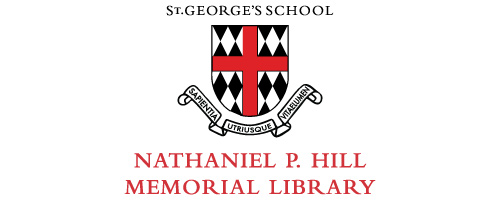Love and theft : blackface minstrelsy and the American working class
(Book)
Author
Published
New York : Oxford University Press, [2013].
Edition
20th-anniversary edition
ISBN
9780195320558, 0195320557
Physical Desc
xiv, 327 pages : illustrations ; 24 cm
Status
St. George's - Non-Fiction
791.12 L884
1 available
791.12 L884
1 available
Copies
| Location | Call Number | Status |
|---|---|---|
| St. George's - Non-Fiction | 791.12 L884 | On Shelf |
Description
Loading Description...
Also in this Series
Checking series information...
More Details
Published
New York : Oxford University Press, [2013].
Format
Book
Edition
20th-anniversary edition
Language
English
ISBN
9780195320558, 0195320557
Notes
Bibliography
Includes bibliographical references (pages 291-318) and index.
Description
"Drawing on recent research in cultural studies and social history, Eric Lott examines the role of the blackface minstrel show in the political struggles of the years leading up to the Civil War.,For over two centuries, America has celebrated the very black culture it attempts to control and repress, and nowhere is this phenomenon more apparent than in the strange practice of blackface performance. Born of extreme racial and class conflicts, the blackface minstrel show sometimes usefully intensified them. Based on the appropriation of black dialect, music, and dance, minstrelsy at once applauded and lampooned black culture, ironically contributing to a "blackening of America." Drawing on recent research in cultural studies and social history, Eric Lott examines the role of the blackface minstrel show in the political struggles of the years leading up to the Civil War. Reading minstrel music, lyrics, jokes, burlesque skits, and illustrations in tandem with working-class racial ideologies and the sex/gender system, Love and Theft argues that blackface minstrelsy both embodied and disrupted the racial tendencies of its largely white, male, working-class audiences. Underwritten by envy as well as repulsion, sympathetic identification as well as fear-a dialectic of "love and theft"-the minstrel show continually transgressed the color line even as it enabled the formation of a self-consciously white working class. Lott exposes minstrelsy as a signifier for multiple breaches: the rift between high and low cultures, the commodification of the dispossessed by the empowered, the attraction mixed with guilt of whites caught in the act of cultural thievery."--,(source of summary not specified)
Subjects
LC Subjects
Blackface entertainers -- United States -- History.
Minstrel shows -- United States -- History.
United States -- History -- Civil War, 1861-1865.
United States -- Race relations -- History -- 19th century.
United States -- Race relations.
Working class -- United States -- History -- 20th century.
Working class -- United States.
Minstrel shows -- United States -- History.
United States -- History -- Civil War, 1861-1865.
United States -- Race relations -- History -- 19th century.
United States -- Race relations.
Working class -- United States -- History -- 20th century.
Working class -- United States.
Reviews from GoodReads
Loading GoodReads Reviews.
Citations
APA Citation, 7th Edition (style guide)
Lott, E. (2013). Love and theft: blackface minstrelsy and the American working class (20th-anniversary edition). Oxford University Press.
Chicago / Turabian - Author Date Citation, 17th Edition (style guide)Lott, Eric. 2013. Love and Theft: Blackface Minstrelsy and the American Working Class. Oxford University Press.
Chicago / Turabian - Humanities (Notes and Bibliography) Citation, 17th Edition (style guide)Lott, Eric. Love and Theft: Blackface Minstrelsy and the American Working Class Oxford University Press, 2013.
MLA Citation, 9th Edition (style guide)Lott, Eric. Love and Theft: Blackface Minstrelsy and the American Working Class 20th-anniversary edition, Oxford University Press, 2013.
Note! Citations contain only title, author, edition, publisher, and year published. Citations should be used as a guideline and should be double checked for accuracy. Citation formats are based on standards as of August 2021.
Staff View
Loading Staff View.

